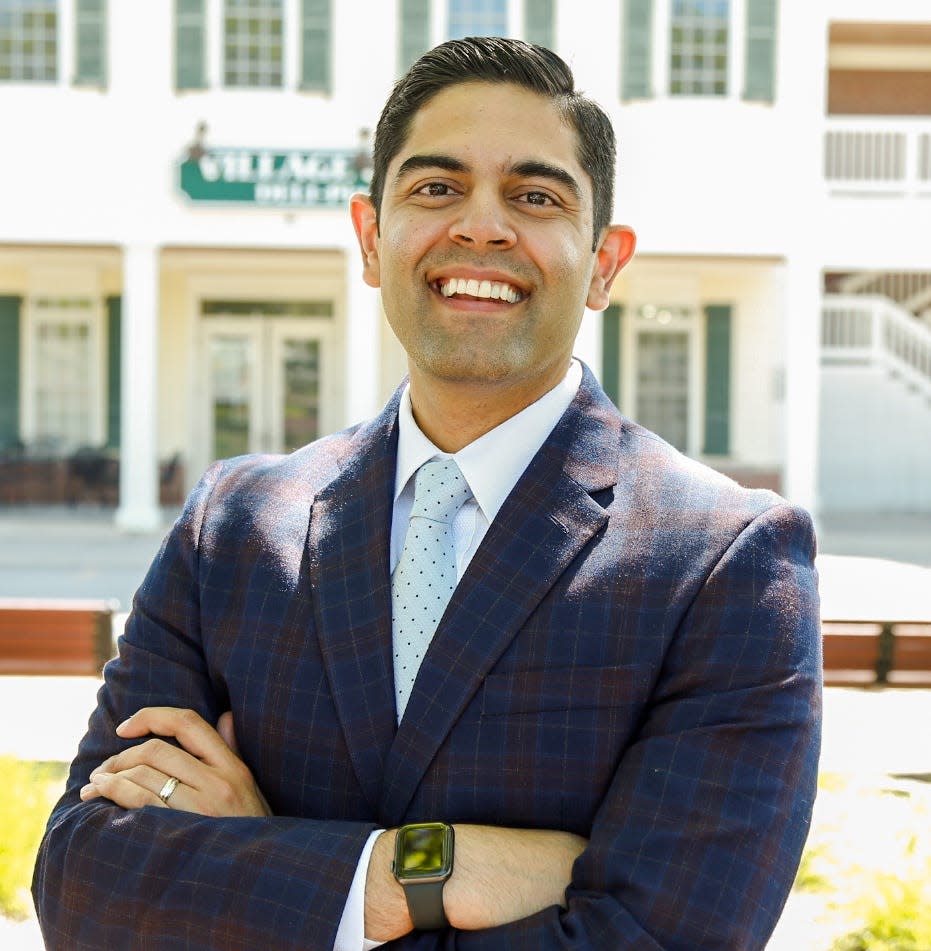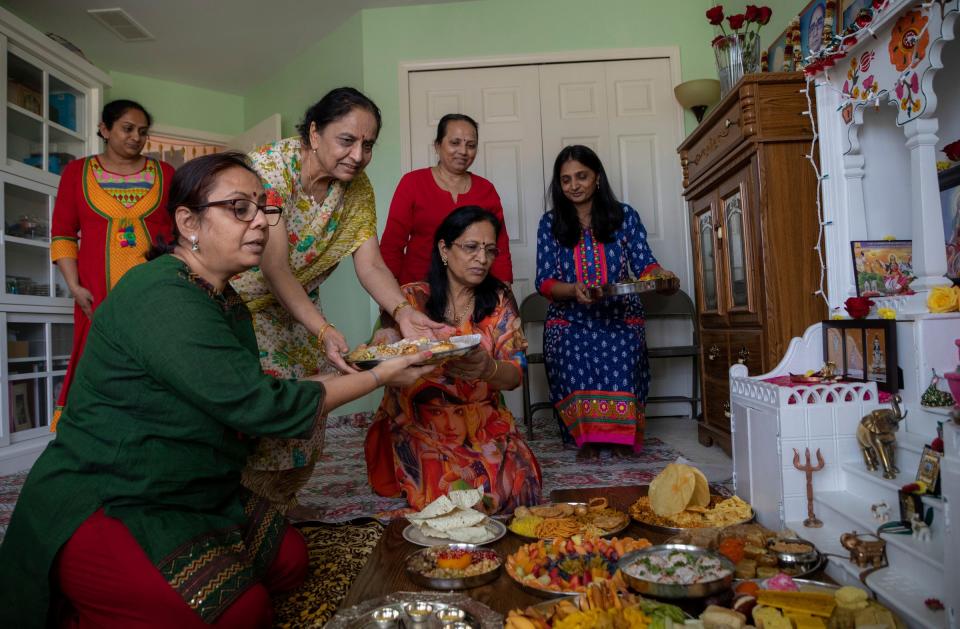Bills propose state holidays for minority faiths in Michigan
- Oops!Something went wrong.Please try again later.
As the religious and cultural diversity of Michigan grows, some are hoping that the faiths of minority groups can be recognized with state holidays.
To that end, a group of state representatives have introduced four bills that would make holidays celebrated by Muslims, Hindus, Sikhs, East Asian Americans and others state holidays.
The package of bills would classify Eid al-Adha, Eid al-Fitr, Diwali, Vaisakhi and Lunar New Year as state-recognized holidays. Another bill introduced by state Rep. Helena Scott, D-Detroit, seeks to make Juneteenth a state holiday, though that day was already made an official state holiday last year by the Michigan Civil Service Commission after labor negotiations and by the Michigan Supreme Court.
"Our state's greatest assets are the various ethnic and religious backgrounds and beliefs that make up our communities," House Majority Whip and State Rep. Ranjeev Puri, D-Canton, told the Free Press by phone. "And so, any way that we can uplift those voices, I will be looking to do that."

The bills by themselves would not necessarily lead to creating additional days off for state employees; that process is done through the Michigan Civil Service Commission or by the Michigan Supreme Court for court employees.
Puri, whose Canton-area district includes a sizable population of Indian Americans, is the sponsor of the Diwali and Vaisakhi bills that recognize holidays often celebrated in Hindu and Sikh communities. Another bill, introduced by House Majority Floor Leader and state Rep. Abraham Aiyash, D-Hamtramck, would designate the two Eid holidays Muslims celebrate. Hamtramck has one of the highest percentages of Muslim residents in the U.S. The fourth holiday bill, introduced by state Rep. Sharon MacDonell, D-Troy, would make Lunar New Year a state holiday. About 29% of Troy's residents are Asian American, many of whom celebrate the Lunar New Year and Diwali. There are also many outside the representatives' districts who celebrate the various holidays.
"By recognizing these holidays, we are not only showing our respect and appreciation for the traditions and beliefs of our fellow Michiganders, but we are also sending a powerful message of inclusion and unity,” Puri said in a statement.
Puri said that if the bills were to become law, they would not lead to state offices being shut down on those days or state employees getting the day off. But passing the bills could help get the communities more recognition on a state level, leading to private employers or school districts being more open to allowing workers and students off on those days. Last week, the city of Dearborn, whose population is 47% Arab American, became what officials and advocates say is the first municipality in U.S. history to shut down City Hall offices for Eid al-Fitr, along with its courts and public libraries. Some school districts in metro Detroit have shut down for minority religious holidays for years, including for Jewish holidays in the spring and fall in the West Bloomfield School District and for Eid in Dearborn Public Schools and Detroit Public Schools.
The bills, if passed, would help make "our state a little bit more inclusive and getting all these kinds of largely marginalized communities some more recognition at the state level," said Puri, a son of Indian immigrants who is the first Sikh to serve in the state Legislature.
More: Dearborn makes history with Eid, Ramadan observances
There are currently 12 holidays recognized by the state, 13 if you include Election Day on even-numbered years. Two of the state holidays are the Christian holidays of Christmas and Christmas Eve. Jewish holidays are not included and not mentioned in the four bills.
Kurt Weiss, spokesman for the Michigan Civil Service Commission, explained how the process works to create holidays.
"Holidays for state-employee civil servants are determined by the Michigan Civil Service Commission under its authority under the state constitution to regulate conditions of employment for the state classified civil service," Weiss said in an email Friday to the Free Press.

About two-thirds of employees have their holidays determined through labor negotiations and the remaining third through civil services rules.
"Further changes to state holidays for state civil servants would require similar bargaining and commission action," he said.
State employees currently can take up to two days off for any religious day, or non-religious event, of their choice.
"In recognition of the diversity of the state workforce and to allow employees to observe days of special significance, civil servants have received two days of paid annual leave each year since 1967," Weiss said.
Emgage Action Michigan, a Muslim political advocacy group, praised the bills, saying in a news release their group worked with Aiyash on the bills' language.

"Not only does this introduction demonstrate our elected officials' commitment to religious diversity and inclusion, but it also moves Michigan forward as a national leader in religious accommodation," Nada Al-Hanooti, executive director of Emgage Action Michigan, said in a statement.
Rising Voices, an Asian American advocacy group in Michigan, said it worked with others to help draft the legislation.
"These holidays are important religious and cultural events celebrated by the diverse Asian American communities in Michigan," Jasmine Rivera, co-executive director of Rising Voices, said in a statement. "The Michigan Legislature can send a powerful message of equity, unity, and solidarity with its Asian American communities by passing this bill package swiftly in its entirety.”
An email to the press office of Gov. Gretchen Whitmer seeking comment on the bills was not returned.
One challenge is that the religious holidays mentioned in the bills don't have a specific date like Christmas and vary according to various calendars. The bills detail which calendars to rely on to determine the days. The Diwali holiday, for example, would rely on a Hindu calendar described in the bill as "Indic pūrṇimānta lunisolar."
The bills have been assigned to the committee on government operations and are expected to get a hearing soon, Puri said.
Contact Niraj Warikoo: nwarikoo@freepress.com or Twitter @nwarikoo
This article originally appeared on Detroit Free Press: Michigan Reps ask for Eid, Diwali, Vaisakhi, Lunar New Year holidays

